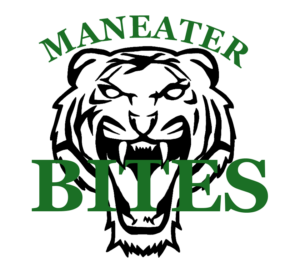November 2, 2017
Two researchers from the MU School of Social Work recently received a $350,000 grant as a part of the Interdisciplinary Research Leaders program from the Robert Wood Johnson Foundation.
The foundation’s goal is “building a Culture of Health with people across the country.” Much of this building comes in the form of leadership programs and grants like this one, according to the foundation’s website.
Associate professors Kelli Canada and Clark Peters are two of the three members on one of the 15 teams nationally that won a grant through a competitive application process. The program involves pairing researchers and local community partners to find ways to create healthier communities, specifically through youth development.
They will be working with Rachel Jones, Director of Child Services at Burrell Behavioral Health, one of the primary partners for field research for social work students.
“We work really closely with our field instructors, and so our director of field saw this notice about an interdisciplinary partnership with a community partner, contacted Burrell because we work a lot with them through field placement, and she set up a meeting with us to talk with Rachel,” Canada said.
This close partnership allows both components of the team to work in tandem, rather than the researchers carrying the burden of the project.
“Rather than the researchers figuring everything out on your own, you work really closely with your partners to try and figure out who you should intervene with, at what point, how we should get people to study, what kind of interventions we should develop for this,” Canada said.
Their proposal in their application involved working with middle-school aged children, intervening before they get sent to juvenile court for the first time. However, the grant’s unique nature allows the team to continue brainstorming even after receiving the funding.
“We had to have a preliminary idea—our’s was that we wanted to intervene with 10-13 year olds who were referred to the juvenile officer for the first time, and we would intervene at that point,” Canada said. “That was our initial idea, but the way that this grant works is they give you almost five months after you get the grant to really develop your specific project, so that you can really work with the community to develop a project that works best for the community’s needs.”
Canada called this type of research “community-based participatory action research.” The team will be reaching out to not only various community partners throughout Columbia, but also individuals, families and public schools.
Of the grant’s funding, $125,000 goes towards the study itself, including physical materials for the study, incentives to keep participants involved and statistical software. The rest of the funding is for personnel training.
“That pays us to do the research and the leadership — it’s a very time-intensive training program that they give us, about 10 hours a week of training,” Canada said. “Webinars, readings, short courses we have to take.”
Another large element of the program is leadership training for its participants. The team attended a Fall Leadership Institute through RWJF earlier this month in Nashville, where they learned about the challenges they will face in their research and their role in solving them.
“There are two challenges. One is ‘How do we build up rigorous research that informs good policy?’” Peters said. “The second is ‘How do you communicate that knowledge to those who make decisions about how to invest public dollars?’ You need both to really be effective, and too often in academia we focus on knowledge building but not communication, and to bring folks from the community, pair them and build teams, that was a big part of the conference, to develop that collaborative leadership style.”
The team hopes to bring back what they learned to their department, sharing their ideas for the betterment of the school.
“The idea is that the three of us can get training, and then we can take back what we learned to our respective disciplines and communities as well,” Canada said. “Hopefully some of those strategies we can share with other people. [The grant] is just for us, but it’s also a community-wide initiative.”
_Edited by Olivia Garrett | ogarrett@themaneater.com_


Comments
The Maneater has the right to remove comments that do not comply with policies surrounding hate speech.